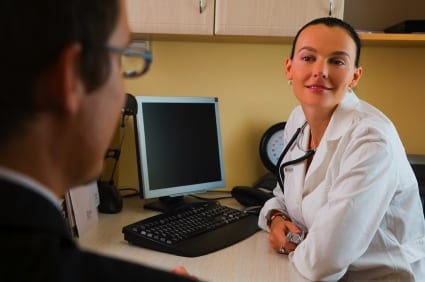
More than two million Americans participate in clinical trials every year. Many may not realize when they sign up that the investigators running the trial are not required to tell them the results.
Re-Contacting Research Participants
The same goes for many genetic studies. In fact, there is often a specific prohibition against re-contacting participants once their samples have been taken.
At the very least, not informing participants of study results seems disrespectful of those who give of themselves to benefit medical research. More worrisome, it can mean that trial volunteers are missing out on the chance to learn information that could be important to their health.
Leveraging Online Tools
Changing the way research is done is no simple task. However, researchers at the University of Rochester Medical Center studying an experimental Huntington’s disease drug have shown that using a combination of targeted electronic communications and personal outreach can be a very effective way of disseminating clinical trial results to volunteers.
After analyzing the drug trial results (they turned out to have no effect), the researchers contacted participants by email and through various Huntington’s disease support groups and called them personally. There was also a teleconference in which study participants could ask the investigators questions.
Their results, published in the December issue of the Archives of Neurology, showed that within 24 hours, almost half of the study participants were able to learn the trial’s results. They reported great value in receiving personalized and accurate information from the research team.
Sharing Results
In the November issue of Genetics in Medicine, researchers from the Genetics and Public Policy at Johns Hopkins University showed just how hungry people are for their results.
In a survey of more than 4,600 people asked to consider whether or not they would take part in a large nationwide genetics study of 500,000 people, researchers found that three out of four people would be less likely to participate if they knew they would not receive their individual research results.
A scale project proposed in the John Hopkins survey could probably not rely on personal phone calls to inform participants of their results. The University of Rochester team benefited from having only a few hundred subjects who needed to be contacted. However, emails and posting on websites could certainly be used to satisfy subjects’ demand for information.
“This eagerness suggests that researchers may have to look for practical ways to return results and abandon the paternalistic stance of protecting people from their research data,” the Johns Hopkins researchers wrote.
23andMe Research
We couldn’t agree more. That’s why we started 23andWe, a new way of doing genetic research in which we hope to mobilize our customers as collaborators, advisers, and participants.
Sometimes, we’re able to return results right away. By answering just a few questions, you can find out if you’re an optimist or right-footed — and how you compare to everyone else who’s taken the survey.
But in addition to being exciting and fun, 23andWe surveys are designed to collect essential data for scientific research. We can’t know where this will lead us, but you will want to see how your data makes a difference. That’s why we’ll share the results of all our research and how your contributions are making an impact.



